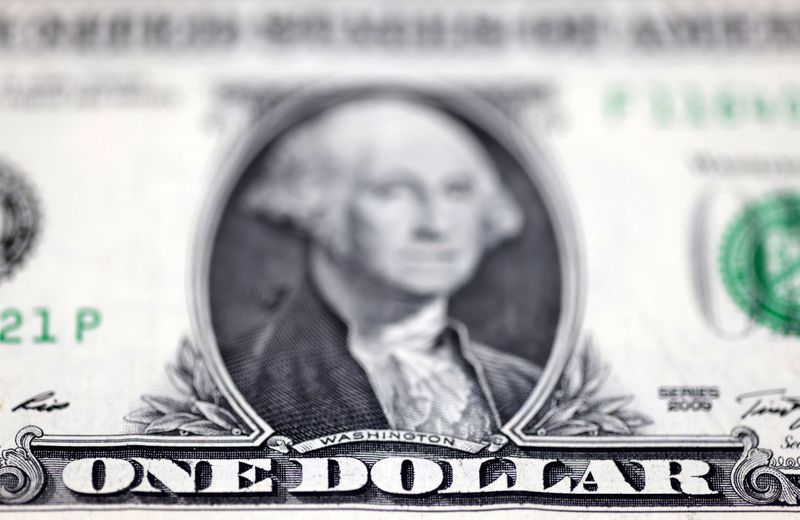By Hari Kishan
BENGALURU (Reuters) – The dollar’s brutal strength in the recent past will give way to some weakness in the next 12 months, currency strategists said in a Reuters poll, with broad agreement that the dollar was overvalued.
Analysts have been predicting for months that the dollar will become weak. But the dollar has continued to expand its dominance against most major currencies, rising 2.9% this year.
Much of this resilience is due to the fact that interest rates remain higher for longer. At the beginning of the year, forecasters and financial markets had predicted that the US Federal Reserve would have cut interest rates at least once by now.
With the latest interest rate futures prices showing that the Fed will ease policy in September, analysts in the May 31-June 4 poll of 75 forex strategists predict that the dollar will give up some of its gains in the coming months.
Much depends on how US inflation (2.7%, as measured by the Fed’s preferred benchmark) will evolve in the coming months.
A separate Reuters poll showed inflation above the Fed’s 2.0% target at least through the end of 2025, suggesting there is a risk the dollar will remain strong for an extended period.
“We think US inflation could pick up again by mid-year and the Fed’s easing cycle could be really short, almost regardless of when it starts,” said Jane Foley, head of FX strategy at Rabobank.
“That means that even though the dollar may give back some ground, it will likely remain relatively firm as the Fed begins to cut spending. The dollar will not give back many of this year’s gains and will remain overvalued.”
While almost all major currencies have faced the wrath of a strong dollar, the Japanese yen was the only currency to weaken against the dollar every year since 2021. The currency has lost more than a third in value during that period.
Average forecasts showed the yen rising almost 8% from current levels, trading around 145.00/dollar in 12 months. The coin has lost about 10% this year.
Meanwhile, the euro was forecast to change hands at $1.08 and $1.10 in six and 12 months, which would indicate a gain of around 1% over a year.
“We expect the dollar to generally lose ground against other currencies… once the Fed starts cutting spending, the dollar should be vulnerable and lose some of its strength,” said Brian Rose, senior economist at UBS Global Wealth Management. .

“We’re not looking for any kind of dollar collapse. We’re just talking about giving up a few percent against most major currencies.”
(For other stories from the June Reuters currency survey:)
(Analysis by Purujit Arun; Poll by Rahul Trivedi, Susobhan Sarkar and Sarupya Ganguly; Editing by Ross Finley, Alexandra Hudson (NYSE:))


